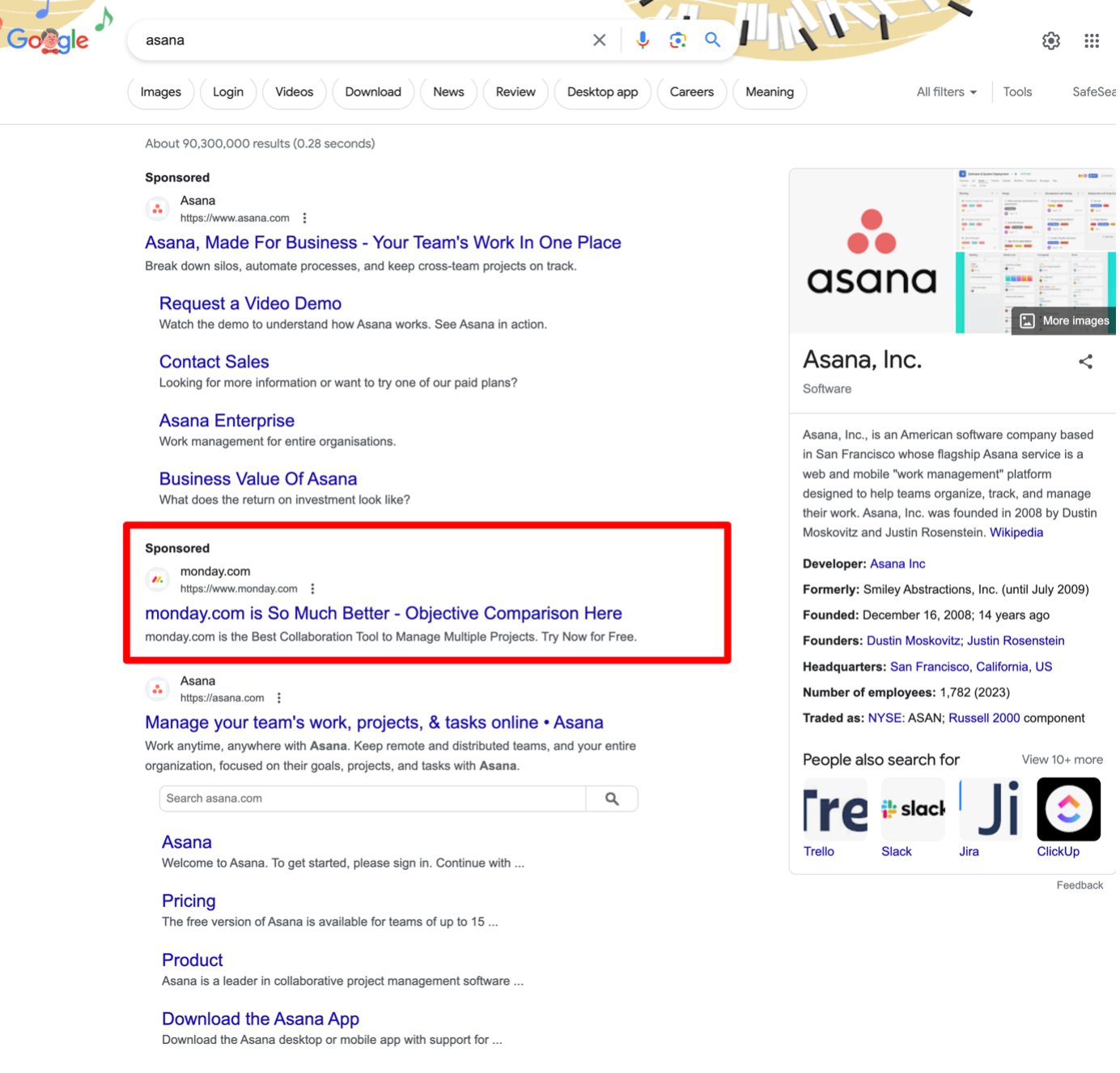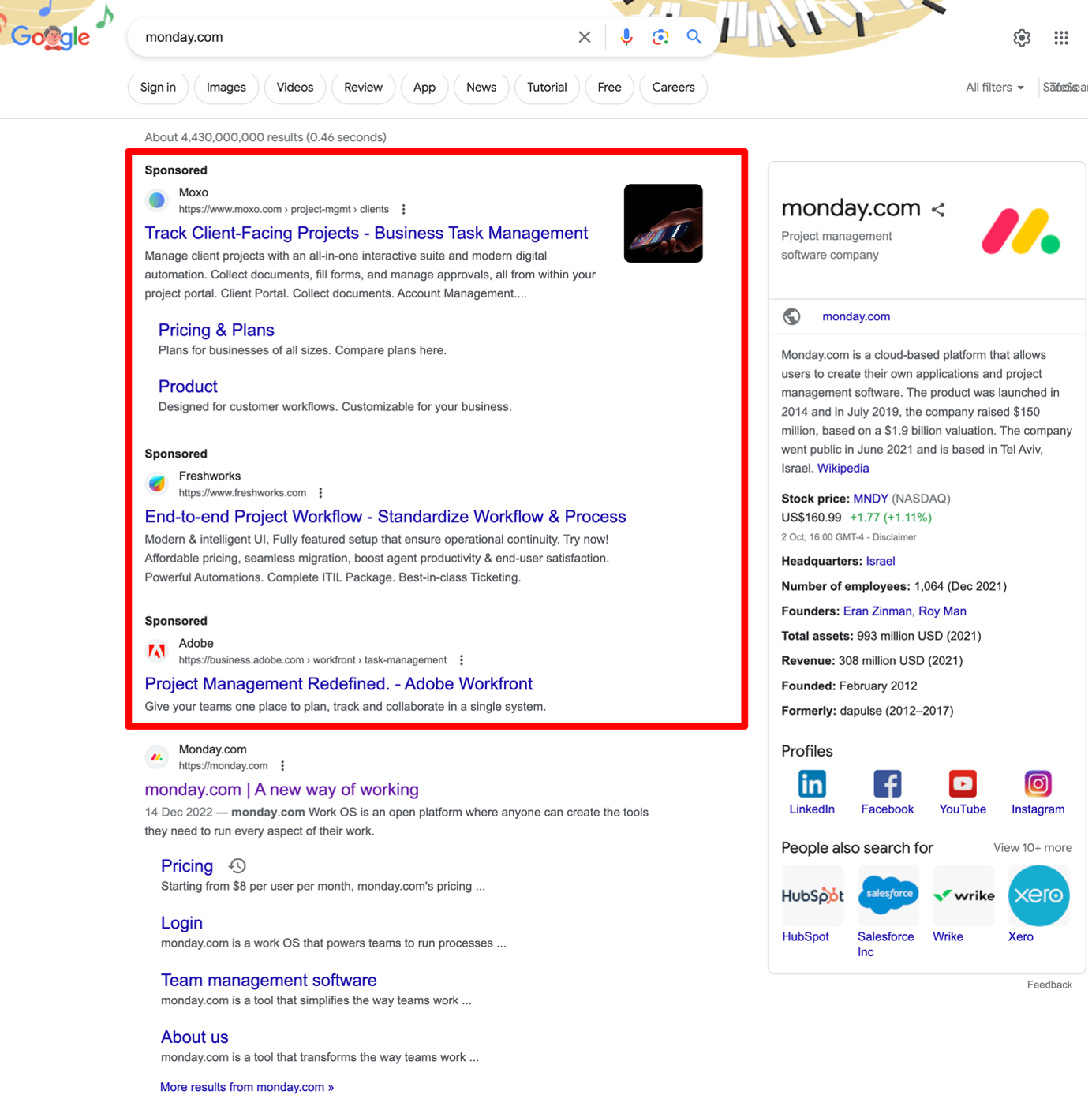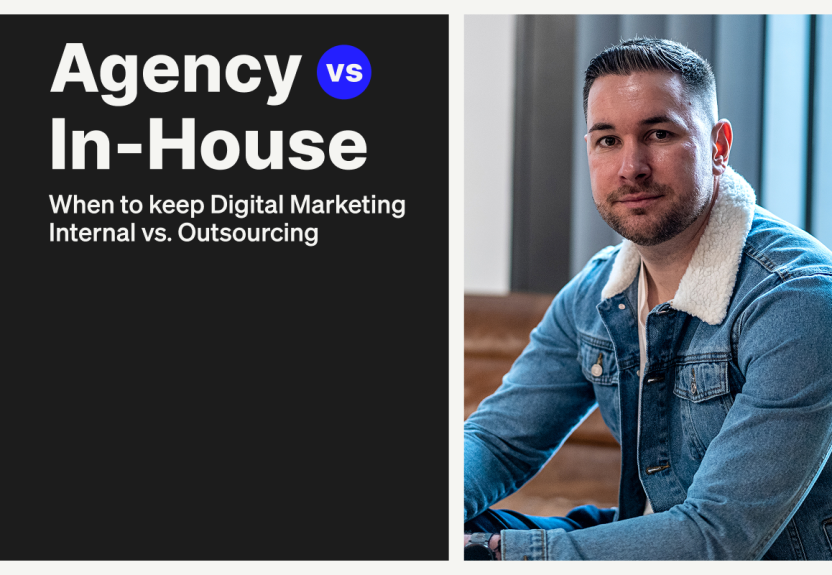I sat down with a PPC Manager around 7 years ago (when Google Ads was much simpler) and he asked me my opinion on launching a competitor bidding campaign. He explained in a previous agency he worked in; he did a competitor campaign for a Harley Davidson bidding against other motorcycle manufacturers.
Within a few weeks he saw conversions coming through for ‘test rides’ and ‘brochure downloads’, and after speaking with the in-house marketing team, they confirmed a direct impact in overall sales. Their comments were along the lines of “people were originally thinking about buying X but saw our ad and decided to explore. Once they took a ride, they were sold”.
Of course, I said yes to building them for one of our clients, who specialises in the Real Estate sector. We built and trialled a wide range of competitor campaigns in the Real Estate sector using both [exact match] keywords for the [developer names] and [development names]. On day 1, like magic, we achieved a huge sale. The lead was originally looking for a development from a competitor he had researched online and came across our ad showing our development in the same location, but with slightly better apartment specs. He changed his decision and chose to invest with us with a sale worth over £600,000. Our CPA (Cost Per Acquisition) was £8.50!
These are great examples of competitor bidding working perfectly, but is competitor bidding on PPC right for your company?
Can you bid on your competitors?
Simply put yes, you can bid on competitors' names in Google Ads. It is a common practice and it can be a very effective way to reach potential customers. However, you cannot use the competitor's name in your ad copy. Google does not allow you to use trademarked names in your ad copy without the trademark holder's permission.
Opportunities for competitor campaigns
In sectors with high ticket items - whether that’s Real Estate, Software or Automotive competitor bidding, they can be highly effective and profitable. The thought of stealing a huge sale away from your competitor feels good, and when that is for hundreds of thousands or even millions of pounds, that’s even better.
Effectively, I see competitor bidding as MOFU (middle of the funnel) or BOFU (bottom of the funnel) activity. If you classify users searching for your brand as BOFU and potentially ready to buy or commit, surely those users are in the same purchase cycle searching for your competitors? This is a great time to introduce your brand, steal a click and gain market share.
When bidding on your competitors, although you cannot use their keyword in your ad (Google Ads violation) - you can have fun with your ad to increase CTR (Clickthrough Rate) and in turn, decrease CPC (Cost Per Click). Maybe a comparison of your product vs your competitors, or a free sample to win your potential new audience over.
If users have been to your website previously and search for your competitors, maybe they are shopping around. We would recommend a bid adjustment on your audience data of around 50% to ensure you’re retaining those users.

Threats with competitor campaigns – if you’re going to give it, you better take it.
It’s not all positive. Lawsuits, threatening letters and bidding wars...we’ve seen it all. Be prepared for a bumpy ride and monitor your campaigns closely.
Expect your numbers to take a while to normalise. If you manage to get a ‘free ride’ without your competitor noticing, your CPCs may be stable but if your competitor begins its own brand protection campaign, your costs will rise quickly and should be monitored.
With all clients, we recommend bidding on their own brand for protection. The biggest advantage of your own brand bidding is the incremental CTR when both PPC and SEO work together. Trialling new ad copy or linking to a part of your website with a promotion can increase conversion rate, so play around with your brand campaigns often.

Best Practices and Tips
Avoid Negative Brand Comparisons: While it might be tempting to claim superiority over competitors directly, this can come off as petty and might violate Google's ad policies. Instead, focus on your brand's unique selling points.
Set a Reasonable Budget: Given the potentially high costs associated with bidding on competitor keywords, it's wise to set a reasonable budget - especially when first testing this strategy.
Use Negative Keywords: Prevent your ads from showing up for irrelevant searches by setting up negative keywords. This can help reduce wasted spend.
Test Continuously: Like all Google Ads strategies, what works for one brand might not work for another. Always be testing and optimising based on your results.
What do our numbers say?
After taking a look through a number of campaigns within our Google and Bing accounts, we have compiled some numbers to share with you.
When analysing our competitor search campaigns vs BAU (Business as usual) campaigns, we can see average CPCs are 78% higher(£1.05 vs £1.87 CPC). Broken down into CPA, the average cost per conversion in accounts with competitor bidding is just 39.87% higher with standard campaigns compared to competitor campaigns (£85.20 vs £119.17 respectively).
Surprisingly though, conversion rate on some of our stronger competitor campaigns for B2B vs our generic industry led keywords, have a higher conversion rate of up to 22%.
What should you measure?
You should expect CPCs and CPAs to be higher than average. For ecommerce businesses, it will be easier to track ROAS - so set your bid strategy accordingly. For B2B and demand generation, pulling in your CRM data back to the competitor campaign conversion should give you the insight into the true value of these campaigns’ vs the TOFU (top of the funnel) or generic campaigns you may be running. I would suspect your campaigns, (as we’ve seen in the data), to be more profitable at a CoS (cost of sale) level but with higher CPLs Cost per leads. LTV (life-time-value) of these customers is also an important metric to measure as this can be direct revenue from your competitors repeat business.
Overall…
Bidding on competitors in Google Ads can be a valuable strategy when executed correctly. By understanding both the potential advantages and challenges, businesses can make informed decisions and develop campaigns that drive results without compromising their brand integrity. Remember, the key is to remain ethical, focus on providing genuine value to users, and continuously monitor and adapt your approach based on performance metrics.
How M3 can help?
At M3, we’re here to help. With experience in performance driven PPC marketing, we’re ready to create ads that speak directly to your audience. Find out how we can help develop your business by contacting us today.






